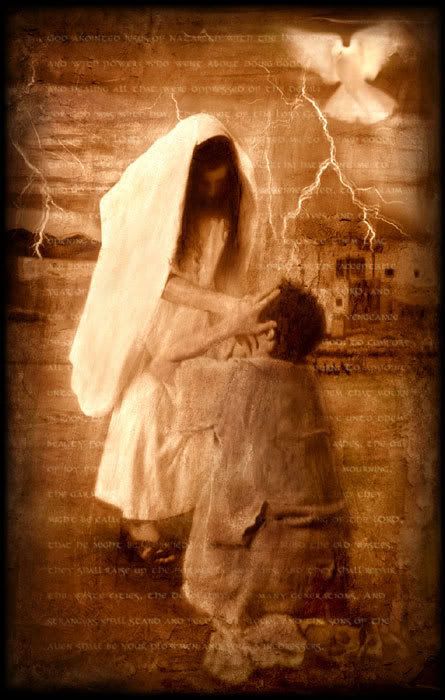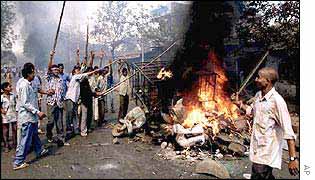On the outskirts of Rome, away from its ancient splendours and heaving piazzas, lies a gleaming new science facility dedicated to discovery, education and research.
At the helm of this mission is Opus Dei - a global network of devout Catholics that has been the subject of negative publicity and mythology since its inception 80 years ago.
Clergy and lay people accuse the group of being secretive, controlling, misogynist and ultra-conservative in its theology. It also had ties with authoritarian regimes, with some members attaining seniority in Franco's government. (Maybe all of these aren't accusations, but truth.)
It shot to prominence in 2003 with the publication of The Da Vinci Code. Two characters were Opus Dei members, and both were sinister and devious, with one practising self-mortification, fuelling the idea that it was an extremist movement.
Given the group's perceived reputation, campus staff play down affiliations with the movement, insisting there is no obligation to be members of Opus Dei or even Catholic, although the staff are expected to adopt and respect its values. (Since secrecy is one of those values, I imagine this facility will be the epitome of academic freedom---NOT)
Paolo Maria Rossini, director for scientific activity, is not a member, although the president of the board and a former papal spokesman, Joaquin Navarro Valls, is.
Rossini said: "We don't hide ourselves under the thumb. We are Catholic by declaration. Stem cell research will never be done here. But nobody is going to check how many hours you spend in church." (I'm more concerned about the validity of the research, not how many hours researchers spend in church.)
Rossini's objective is to develop the research facility's capacity to rival secular scientific institutions, devoting enviable resources to neuroscience and oncology.
"When science is going very close to life and death we need good research to be able to compete with lay research," Rossini said. "The impact of science and medicine is a multi-faceted challenge and one of many frontiers the church has to face." (Science is value neutral. It's about repetitive scientific truth. It is not about competition between competing philosophies of truth. Good research is good research, period.)
His mission bears a Vatican blessing. Tarcisio Cardinal Bertone, secretary of state and the second most senior official in the Roman curia, inaugurated the campus this year.
He reminded assembled dignitaries of a key papal belief - that medical science must respect life - and told them: "Here you must transmit the gospel through your professional work, aided by modern technology.
"You have to make your voices heard in the world of science without renouncing the non-negotiable values of the human patrimony." (It sounds like Cardinal Bertone is confusing science with Vatican definitions of secularism.)
But Opus sceptics noted that Pope Benedict XVI did not attend the campus inauguration and interpreted his absence as a snub. There was also thinly disguised glee when the Vatican replaced Navarro Valls with a Jesuit priest as papal spokesman.
It was seen as a blow to the privileged status enjoyed by the group under the papacy of John Paul II, who was so captivated by Opus Dei's aims of sanctifying secular activities that he called them a "great ideal" and canonised the founder, Saint Josemaria Escriva, in a manner deemed unusually rapid by Vatican standards. (Some of us think JPII was enamored by something else entirely concerning Opus Dei--like their fascist and authoritarian theology and structure.)
The late pontiff's enthusiasm was a root cause for resentment and suspicion. Under Joseph Ratzinger this emotional connection has cooled. (This is one of the biggest reasons I'm developing a fondness for Benedict. He doesn't seemed to be all that thrilled with theocratic fascist organizations.)
The campus will help to fulfil Opus Dei's vision of creating a white-collar Catholic elite. Typically, members are intense, intelligent and highly motivated, said John Allen, from the National Catholic Reporter and author of a book on the movement. (I thought I just wrote something about caste systems. Maybe I'll have to write more.)
"There is an ethos of excellence that is part of the culture. If you buy into the philosophy that your everyday work is a service to God then you will do that work really well."
The group's ability to mould articulate, intelligent, successful individuals accounts for its profile and influence, which is disproportionate to its numbers yet allows it to punch above its weight.
Allen says the campus is also a way to inject a note of calm over Opus Dei by providing opportunities for positive encounters with members. "It has carved out a niche that appeals to people who want to live a serious religious life and have the same level of commitment as a priest or a nun. (I wonder if it's all that Opus Dei molding that precludes these people from becoming a priest or nun, and that allows them to subordinate their godly work to Opus Dei leadership.)
"It is about evangelising the profession, bringing a spiritual depth to work. They are interested in bringing a Christian approach to law, politics, architecture, so it's no surprise they're doing it with this campus." (It isn't about Christian, it's about Opus Dei theology and philosophy, so it is no surprise they are doing it with an Opus Dei bio medical research facility.)
But one former member, Monsignor Vladimir Felzmann, believes that Opus Dei has a covert agenda to its activities. He was a member for 22 years, joining in 1969, and was one of those closest to its founder. The group's overall aim is to recruit, he said. (Recruit for what and for whom. Can't be Jesus. He wasn't into forming an 'elite' group of white collar intelligentsia.)
"Covertly it's to have something to which you attract leading scientists and persuade them to join. But it's hard to know who belongs and who doesn't because they're encouraged not to tell you. You don't know what they're up to." (Guess what Father, you're not supposed to.)
Former members seek out Felzmann, a priest in the London diocese of Westminster, for pastoral care. He concedes that Opus Dei contributes positively in the fields of education and healthcare, yet remains concerned by its impact on individuals who break away.
"When you meet people who, as a result of Opus Dei, give up religion and don't want funeral prayers to be said, then that matters." (Not to Opus Dei. These apostate people are no longer 'elite'. They are self made failures.)
He said he was saddened, rather than bitter, about the group. "When Christianity and fascism embrace you get Opus Dei. It was born in a time of fascism. They don't teach respect and love for others." (BINGO.)
But Opus Dei continues to grow. Success in Spain, Italy and Latin America has emboldened it to embrace Russia, Kazakhstan, South Korea and Vietnam.
Such ambition is not cheap - the campus cost around €30m (£23.5m) - and Opus Dei receives funding from the European Union and the Italian state for some initiatives. It also has benefactors, sometimes non-members, who finance activities. One Jesuit priest argues the group is "putting its money where its mouth is" by wanting to excel in morally acceptable areas.
Father John Paris, Walsh Professor of Bioethics at Boston College, said: "They want to be leaders. They would love to win the Nobel prize. If you're working in cancer research and can choose where to go, you'll go to the best.
"Opus Dei is committed to having an impact on those they think will be influential and successful. Why do people go to Yale or Harvard? Build a bigger mousetrap and better people will come. They want to play with the big boys." (I wonder if this was intentional on Father Paris's part, or just a Freudian slip. Mouse trap indeed.)
*******************************************************************
As one can see from my multiple comments with in the article, this piece just lends itself to commentary. I can't help but wonder just why Opus Dei and their benefactors felt the need to build their own bio medical research facility. It's not like there aren't plenty of other Catholic research hospitals and teaching facilities. Places like St. Jude's Children's Hospital in Tennessee already have a formidable reputation for the quality of their care and their research.
However, if the numbers of applications for admission are any indication, it does appear as if Biomedical University Campus has an inbuilt reason for existence. I guess I can't be too surprised about this development, given that the Jesuits have been running their own universities for centuries. I guess starting your own system of higher education is one way to tell if a recent apostolic group has made the big time. The Legionaires certainly do this, as do any number of other recently founded religious groups.
A biomedical research facility might be a horse of a different color though. I couldn't help but notice that the specialties will be neuroscience and oncology. Recent break throughs in neuroscience are probably especially troubling to the Vatican, especially quantum neurophysiology.
Some of the research is indicating that our brains are capable of connecting with a larger number of information streams than previously thought. This has the potential to call into question a few pet ideas concerning the supernatural and our place in the creation of the universe, and all of this has serious repercussions for the traditional Catholic world view. I kind of wonder if in some secret isolated lab somewhere on campus there won't be some Catholic values laden research designed to debunk quantum neurophysics.
In any case, more power to Opus Dei in their attempt to defend the universal truths of Catholicism as they pertain to the biomedical field. I just hope they don't think they are pursuing a neutral scientific path because they won't be. I also hope that the ever so obedient researchers and their work aren't used for some other purpose besides 'competing with lay research'.
I know some readers--especially with that previous sentence---are going to wonder if I haven't gone off the paranoid scale, but until Opus Dei gets far more transparent, I just can't help wondering.













